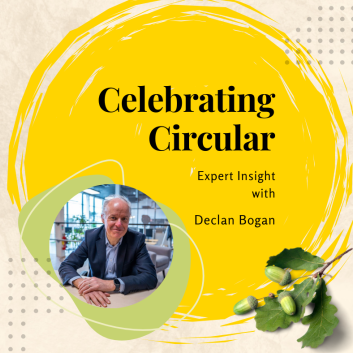What are the alternative ways of funding climate innovations?
Climate technologies and purpose-driven enterprises can help us to rapidly curb greenhouse gas emissions to achieve net zero by 2050.
However, to scale and deliver these solutions, climate tech companies and purpose-driven enterprises need to be able to access funding opportunities.
One of the biggest hurdles for impact entrepreneurs is securing adequate funding for their initiatives.
They may face challenges with having to pay higher upfront costs but also many investors can still be unfamiliar with or sceptical of the potential and impact of sustainable businesses.
With this in mind, many impact entrepreneurs find they must develop innovative business models, demonstrate their value proposition, and look for alternative sources of finance such as impact investing, green bonds, or crowdfunding.
They may also lack knowledge concerning climate finance, and this lack of education can act as a significant barrier.
It was for these reasons that Esme Verity, a Fundraising and Alternative Funding Expert, set up Considered Capital, a hub of empowerment and education.
Having worked with thousands of founders to connect them with the right sources of funding and support, Esme found early on that when founders are not shown all funding options, they hit a brick wall with their business.
Esme says: “I’ve personally coached over 100 purpose-led founders over the past 12 months to raise funding, and one of the biggest challenges I see is that most founders do not understand what type of funding is best for their business.

The funding landscape can be very difficult to navigate; it’s complex, time-consuming, and vast.
Part of our work at Considered Capital focuses on this issue, recognising that accessing funding is challenging and purpose-led founders need tailored support.”
She adds: “I built Considered Capital to support founders in feeling more confident and thinking outside the box when going after what they need to build a successful business.
Raising money can feel like a long, complicated slog. However, with education, and a community of brilliant minds and supportive energy, founders feel like they are in this together and reinforce one another’s confidence.”
So far, Considered Capital has empowered thousands of founders to think beyond VC-style funding and consider other funding routes.
They are determined to challenge the notion that venture capital is the only way to fund your business and to find a funding fit that aligns with your values.
Esme explains: “Our mission is to open up alternative funding and the world of funding options available for startups, founders, and socially-led businesses.
We’re educating people across the globe on all of the alternative routes to funding businesses through our free events, workshops, and our flagship programme, the Alternative Funding School.”
The Alt Funding School aims to support purpose-led founders to get funded, helping entrepreneurs explore the full range of funding options, which allows them to select a route to funding and build a fundraising strategy that best aligns with their business and values.
According to the World Economic Forum’s Global Risk Report 2023, the leading risk facing the world over the next decade is failing to mitigate the environmental crisis.
Climate technologies and purpose-driven enterprises could play a massive role in helping us achieve global climate goals.
However, without investment and funding opportunities, these trailblazing initiatives and solutions cannot take their wings and fly.
Climate incubators and accelerators have an important and multidimensional role to play in supporting new low-emission and climate-resilient technologies to be developed, embraced, and utilised by society.

One of the most well-known global programme for start-ups to catalyse, innovate, and scale the potential for their climate solutions is the ClimAccelerator from Climate-KIC .
This accelerator has been running for the past 10 years and is being scaled to break new groups in areas such as carbon reduction, resilience and adaptation, and more.
Ireland is one of the countries that offers entrepreneurs more options to choose from to embrace climate innovation.
The 2050 Accelerator powered by Dogpatch Labs and supported by the Department of the Environment, Climate and Communications is helping to make Ireland the leading platform for sustainability innovation.
The Green for Business program is run by the Local Enterprise Offices (LEO) in Ireland and offers practical mentoring and other support for SMEs to integrate sustainability into their businesses.
Accelerate Green is an executive accelerator designed to help entrepreneurs scale their purpose-driven businesses, supported by Bord na Móna in conjunction with Resolve Partners.
Recently, Trinity College Dublin launched a brand new accelerator programme for SMEs focusing on the built environment. This six-month virtual programme enables businesses to scale up innovations that can decarbonise the sector.
The number of green accelerators and supports is rising across Europe and beyond; however, more accessible funding is needed to ensure we can achieve a net-zero economy by 2050.
















